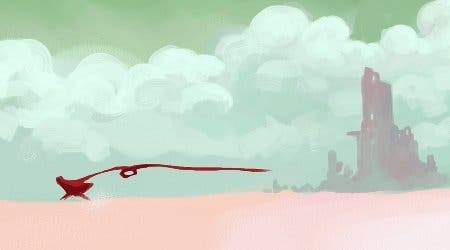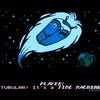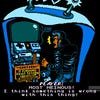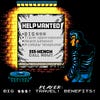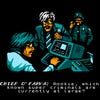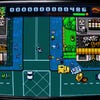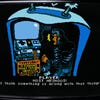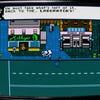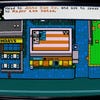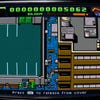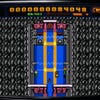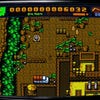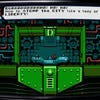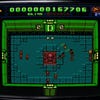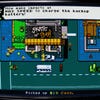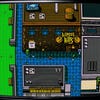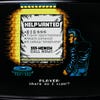GameCity Discussions: Indie Kids
thatgamecompany's Hunicke and Retro City Rampage on life as an indie.
Everyone's going indie - it's a path that's becoming increasingly well-trodden, and with the rise of Steam, Xbox Live Arcade and PlayStation Network, striking out on your own is becoming an increasingly viable option for developers.
Brian Provinciano and Robin Hunicke know this well - having both started their careers amidst the corporate storm of larger publishers, they struck out. Robin joined thatgamecompany where she now works on the forthcoming Journey, while Brian's working hard on Retro City Rampage, a game that's set to be one of 2012's XBLA highlights.
Here, the two are caught in discussion at Nottingham's GameCity festival, speaking about their own personal journeys and the creative advantages of working on independent games.
Beginnings
Working at EA, there were so many people. I recently drove up from Los Angeles to San Francisco for a friend of mine's baby shower, and I had a friend with me in the car - and I said we should stop by EA's Redwood Shore campus, because she'd never seen it. So we went and walked around the campus at about four in the morning, and it is huge. I'd forgotten how big it is - it's a huge building, there's 800 developers and then there's a legal wing and there's corporate and customer service.
It's a beautiful campus, people play soccer on it every day and there's a canteen and a gym. It felt like I was given the keys to the city - my first job was in this amazing building surrounded by developers, free food, it's super polished and super posh. And now at ThatGameCompany we have twelve people, and the only free food we get is cereal. It's very different.
I really enjoyed it. The best times were at Digital Eclipse and Backbone. It was interesting, and I think we were just about the right size. I was working late and always crunching, but it felt great because we were just like a family, and then as it expanded it shifted a bit. I was working at Propaganda, the Disney studio, and I felt like a cog in a machine there.
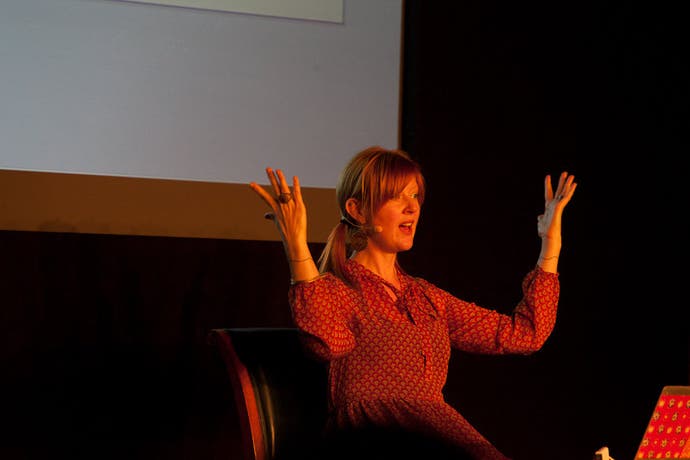
That's too bad.
Every day I was looking at the clock. It wasn't like that at the beginning, and I felt like I'd reached the peak for what a programmer can do at a studio. I felt like there wasn't any growth. I had a reflection, and I thought if I stay here, I'm going to be doing exactly the same kind of thing in ten years time, in this room with all these people next to me staring at computer screens. I thought that's it, I've reached the end. It's time to do something new.
I had a similar experience. I really did enjoy working with the people I was working with - there were some really fantastic and crazy people working on Boom Blox, and I met my husband on that team - but it became clear that there was a shift in the wind in the way that the business was moving, and that a team like ours was not going to be standard if it was going to be around at all.
The job that I could have got if I had been promoted would have taken me really far away from development. It'd be managing a SKU with multiple teams and figuring out how to get these people in Oregon to do this and these other people to do this. Pretty soon what you're doing is you're at your desk the whole time and writing email and just sending, sending, sending. Pretty soon you're just saying yes or no, money or no money, and that job to me wasn't compelling.
Something Propaganda was doing, they realised that a lot of programmers, they work their way up and then become these lead programmers where it's just paperwork. It's not taking advantage of their talent, and it's just boring to them.
If you're learning it's good, but I just didn't think I was going to challenge myself and the things I'm actually curious about. I'd definitely have to learn new things to be a good manager in that context, but that was going to be very different from what I'm passionate about. When you feel that way and you're watching the clock... I took a trip to Bhutan and hiked over this mountain, and when I was coming down the other side I thought, you know, some things are going to have to change in my life.
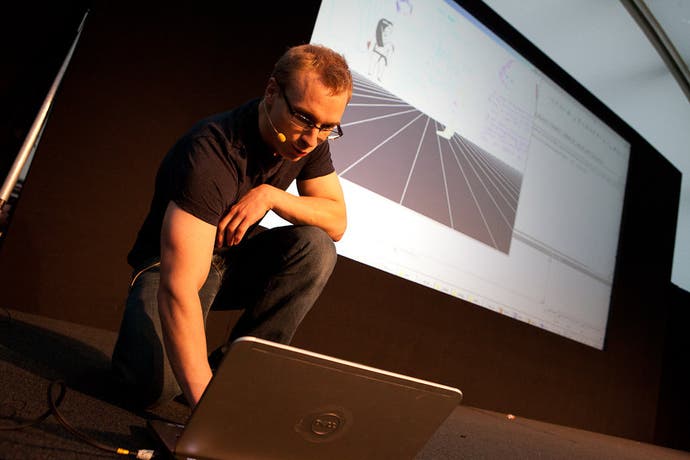
I forget who it was, but there was some big developer who said just because you're good at something doesn't mean you should do it. My epiphany was just that I'd been saving up for years, because I knew I wanted to go indie but I didn't want to lose my steady paycheck and all of that, and that was really scary. I spent four or five months going into work, wanting to hand in my notice but not wanting to take the risk, and every day I felt was like my last.
So you must have felt a bit like a dead man.
I did. It really drained me, and a long time I was doing my job, including crunch time when I was doing twelve hour days, and then I'd go back and work on my game for another four hours. I was able to do that for a while, but eventually I couldn't do it anymore - my body was dead, my eyes were purple, and I just physically couldn't do it anymore. I didn't have the energy after work to do my own game, and it was my own game that was making me feel good.
Striking Out
There are two ways to go about it - you can do the start-up approach and try and get funding, or you can sacrifice your weekends and evenings working on something, showing it to people and getting honest feedback on if it's good or not. If you've got a prototype, you can gauge if there's potential in there deep inside. The key is to make sure when you're talking to people to be honest about your game - tell me if it sucks.
Yeah, don't be kind.
Submitting it to contests, to the IGF and stuff, is amazing. If you can make a game good enough to get noticed you can pretty much guarantee that publishers will talk to you. I'm a firm believer that people should work on their indie games part time as long as they can, and not go full time until a publisher's interested.
Really?
Yeah, I'm not a big fan of looking for funding and then going.
What about the other alternative of just making a game for yourself and not stressing yourself out? I don't know if you saw Stone Librande's talk at GDC this year. He gave a great talk about all these games he made for his kids for Christmas, and they reflected his relationship with his children over time, but they also reflected his growing interest in game design. When he first started he was actually a programmer working in a software company, and then he made a couple of games for his kids. One of them was really referential to Diablo, and he showed it to the Diablo team and eventually became a developer there.
The fact that he became a game designer was wrapped up in this craftsman's approach to making games for his kids, so that every Christmas there'd be a new game under the tree. At first they're just little games, but then they get really baroque and there's these hand-carved wood-sets, these beautiful things that he made. He didn't stress himself out about making these games - he set himself a goal where every year there'd be one game his kids could play, and I think we can have that kind of relationship with our own output, even if it isn't super successful financially. If you have friends and family that play a game and love it and a few fans on the internet - maybe there's a place for that.
I think that's great. Right now, I still need to get that cushion, and get my mortgage paid off. But that's a dream of mine - I want to make enough money where I've got a big cushion and I can go and make an artsy game. The funny thing is, before I quit my day job, I was thinking this is terrible - I was losing eight or more hours a day working at this company, and once I quit and went full-time working on my own game I was convinced it was going to be amazing. But then instantly it shifts, and I realise I've got to pay the bills - so that eight hours a day becomes me pitching and doing all this paper work, dealing with interviews and all of that to make sure my game was successful. So really I just switched one full time job for another.
So you still have two full time jobs.
And you know, I do remember when I did quit to do this fulltime, I said to myself, honestly, I don't know if this will be big, I don't know if this will be successful, but I don't know if I can do this day job anymore. I don't know if I've got it in me - I just have to do this, because it was really eating away at me. I wanted to go on, and try going on my own and make my own game and run my own company. And if I didn't do it now, I'd regret it every single day. I'd be looking at the clock, regretting it - and I said even if I lose everything I've got and fall flat on my face, at least I'll have created this game, and I'll have gotten it out of my system.
Yeah, I was saying that recently - life is short, and you should be working on something that you're passionate about. Even if it isn't hugely successful, even if it's got flaws - if it's from you, then you have to love it in a way, you have to really appreciate it because you've done it yourself.
The Craftsman's Approach
It's something we talk about a lot. There shouldn't be anything in the game that's a waste. It shouldn't be a waste of anyone's effort, because there's not that many of us, or a waste of the player's time. We wouldn't want to put something in there just because we could. If there's no reason for it to be there, and if it isn't part of the experience in a meaningful way, it's just hubris. So we try to be mindful of each piece we make, and to craft that. If we didn't, it wouldn't be respectful of the player's time, it wouldn't be giving you true value.
It's funny - you'd think a triple-A game that's multi-million dollar, would have the polish and detail. They kind of do, but I get feedback about the level of polish and detail in Retro City Rampage, and that jumps out to them as feeling personal and from me. I don't know what it is, but I know that when I look at Fez, it's got these effects, these lines and squares and scaling. I know that it took days for them to do, and it's worth it. I can see the hours going into the details.
It's interesting, the literacy about games and the increasing ability to read them as the handcrafted work of someone else comes from society being more familiar with computers and familiar with games. That's what my husband and I loved about your game - you can get totally lost in it, and you feel the sense of ownership and discovery. It feels like you're having a personal connection with the person who made it, and it feels like this really awesome dollhouse, except it's cars and shooting stuff.
A lot of Retro City Rampage's an homage to the stuff I loved growing up. There are other things too - I've got a friend called Chuck Chow, so there's Chuck Chowder in there, and the bike's a Brookie because my friend Brooke drives a Vespa. But there are other things too - in Vancouver, there's a big problem with drug addicts and homeless people on the East Side. When we were having the Olympics coming to town, everyone was like, what are we going to do?
When the Olympics came to Canada, rumour is they gave them all one-way tickets to Vancouver. We also had a really sleazy premier at the time called Gordon Campbell, and one of the missions plays off Soylent Green - the unnamed premier gets you to clean up the population so you've got to pick up the homeless people in the back of a garbage truck. Of course not all of the game's in poor taste and morbid like that, but there's a deeper level to it. Not everyone will know that, but I don't care - there are things in there that only close friends will know.
Jenova, he absorbs a lot of information. He's kind of like an antenna - he absorbs the vibration of culture and watches a lot to see what's happening in the world, and sometimes he'll have a conversation with someone that will spark an idea and then he'll come back to the office and this brainstorm will be happening and everybody will be discussing this concept.
Journey started off as an effort to create this sense of connection between people, and it's grown to encompass a lot of our feelings about the nature of life, why we're here and what you're contributing and your own journey. There's been so much metaphysical conversation in the office as a result of working on the project. I now know a lot of people working on the project very intimately, because we have these philosophical discussions about what it really means to be on a Journey.
It's important to ask these questions and work them into the games themselves. It's important to try and build games that confront the nature of existence and what our time on the planet is really about. To increase the peace, in a way.
